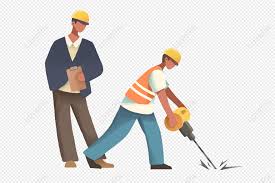Why Manual Handling Industrial Training is Essential for Workplace Safety in Ireland
In every industrial setting, safety is paramount. Manual handling, though an everyday task for many employees, poses risks that can lead to serious injuries if not conducted properly. This is why manual handling industrial training is not only beneficial but essential for ensuring workplace safety across various sectors in Ireland.
The Importance of Manual Handling Industrial Training
Manual handling involves a variety of tasks that require physical effort, such as lifting, carrying, pushing, or pulling objects. In an industrial context, these tasks can involve heavy machinery, equipment, and loads that can be hazardous if not handled appropriately. Here’s why specialized training is critical:
- Risk Mitigation: Proper training equips employees with the skills to assess risks associated with manual handling. Understanding how to perform tasks safely minimizes the chance of injury.
- Compliance with Regulations: Ireland’s health and safety regulations require that employees undertake adequate training. Failure to comply can lead to legal repercussions and financial penalties.
- Improved Productivity: Employees trained in safe manual handling techniques can work more efficiently, leading to improved overall productivity within the workplace.
Key Components of Manual Handling Industrial Courses
Effective manual handling industrial training courses often include the following components:
- Risk Assessment: Understanding how to assess the risks associated with various handling tasks.
- Proper Lifting Techniques: Instruction on proper techniques for lifting and moving items to reduce the risk of injury.
- Use of Equipment: Training on the correct use of equipment and aids designed to assist with heavy lifting.
- Ergonomics: Information on how to set up workstations to minimize strain during manual handling tasks.
Benefits for Healthcare Workers
Healthcare workers, including nurses and caregivers, often engage in manual handling that requires specific skills to protect both themselves and their patients. The benefits of manual handling industrial training in the healthcare sector include:
- Enhanced Patient Safety: Proper techniques prevent accidents that could harm patients during transfers or lifts.
- Reduction of Injuries: Minimized risk of back injuries and musculoskeletal disorders which are common among healthcare workers.
How to Choose the Right Manual Handling Industrial Course
Selecting a training program requires careful consideration:
- Certification: Ensure the course is certified and recognized in Ireland, ideally providing a manual handling industrial certification.
- Flexibility: Look for online options such as a manual handling industrial online course that allows employees to train at their convenience.
- Reputation: Choose a training provider with good reviews and success rates among previous attendees.
Local Training Options in Dublin, Cork, and Galway
Irish Manual Handling provides a range of manual handling industrial safety courses throughout Ireland, including major cities:
- Dublin: Several training centers and online courses are available to fit all schedules.
- Cork: Local workshops focusing on practical training and assessment.
- Galway: Flexible options to cater to different industrial sectors and job roles.
Conclusion
Investing in certified manual handling industrial training is not just about compliance; it’s about fostering a culture of safety that protects employees and enhances operational efficiency. Whether you work in healthcare, manufacturing, or any other industry where manual handling is prevalent, having a solid training foundation is essential for ensuring safety and health in the workplace.
For more information on manual handling industrial certification in Ireland or to book a course, visit Irish Manual Handling or contact us at [email protected].



 349,500 Offered Certificates
349,500 Offered Certificates
 24/7 Online Training
24/7 Online Training
 Money Back Guarantee
Money Back Guarantee
 Fully Accredited Courses
Fully Accredited Courses
